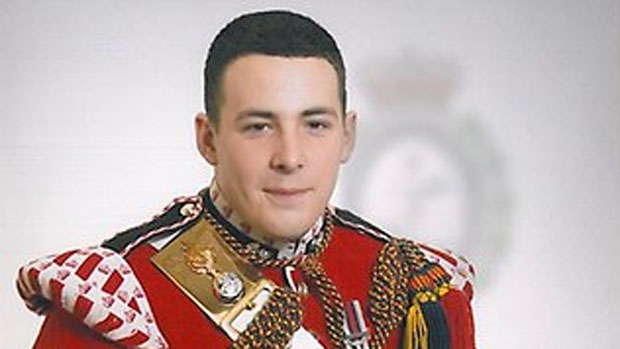Lee Rigby’s life ‘could have been saved’: MI5 needs to up its game
Public have a right to expect MI5 to properly audit procedures and learn from their mistakes quickly

A free daily email with the biggest news stories of the day – and the best features from TheWeek.com
You are now subscribed
Your newsletter sign-up was successful
IF IAN FLEMING were writing the James Bond books today, his hero would be working for MI5, not Universal Exports or MI6, whose role after the long withdrawing roar of British influence in the world, particularly in the last decade, is increasingly one of liaison.
As the front line against Islamist terror has moved from the Middle East to the Midlands and the Home Counties, MI5 has become the key intelligence service.
How it is supervised is therefore a matter of personal importance to us all. And it doesn’t seem to be working as it should. It’s beginning to look as though MI5 should have been able to intercept Fusilier Lee Rigby’s brutal killers before they struck in May last year.
The Week
Escape your echo chamber. Get the facts behind the news, plus analysis from multiple perspectives.

Sign up for The Week's Free Newsletters
From our morning news briefing to a weekly Good News Newsletter, get the best of The Week delivered directly to your inbox.
From our morning news briefing to a weekly Good News Newsletter, get the best of The Week delivered directly to your inbox.
This is apparently the view expressed by the parliamentary Intelligence and Security Committee (ISC) in its report on his murder currently circulating in draft in Whitehall, and due to be published before the parliamentary recess starts in July. It suggests that two opportunities were missed to head-off or apprehend Rigby’s brutal killers Adebolajo and Adebowale.
Having identified both men as a potential threat, the agency allowed them to slip off the surveillance radar in 2012. I am not sure this is entirely fair criticism. Physical surveillance is in short supply and costly in manpower. No intelligence agency is ever going to have enough at its disposal. And it’s getting more difficult to mount operations successfully - especially now as anyone who watches American television is surveillance-aware these days.
But curiously MI5 does not seem to have kept the pair under any form of electronic surveillance - monitoring their emails and social media habits – a simpler and cheaper alternative that often acts as a safety tripwire.
In the six months leading up to Rigby’s murder there were “a number of incidents” where one of the pair, Adebolajo, signalled his intent on the internet and in social media. When quizzed by the committee as to why MI5 failed to spot this, security officials replied that they could not obtain the computer data in advance because the internet service providers (ISPs) were based in the United States and the US legal system made it difficult and time-consuming for British agencies to get hold of private data of this kind – telephone calls, text messages, emails and postings on other social media.
A free daily email with the biggest news stories of the day – and the best features from TheWeek.com
I find this hard to believe. It is true that the American agencies and legal system were never particularly co-operative in hunting down IRA men who took refuge in the US; that they would be obstructive in keeping tabs on Islamists well down the route to radicalisation seems unthinkable.
Also, the relationship between MI5 and the FBI is very close – both agencies maintain full time liaison staff in each other’s capitals. In any case, Edward Snowden’s revelations make clear that if anything there are too few legal protections in the United States against wire-tapping, an activity undertaken promiscuously by the National Security Agency (NSA).
That MI5 should offer up such an explanation to a parliamentary committee is depressing. It suggests they don’t take the ISC seriously and that their own internal review of the case, if they bothered to do one at all, lacked rigour.
The issue at stake here is operational efficiency. No one is suggesting for a moment that MI5 is going to get everything right every time. They have a good record and do a difficult job. But the public has a right to expect them to properly audit their procedures and learn from their mistakes quickly. Not as a result of a report produced nearly a year after the event.
Hindsight judgments rarely have a sympathetic quality – trying to understand what it was like to make decisions against the clock and almost always with incomplete information. But a proper “intelligence audit” where key decisions are measured against both other options and the background operational environment at the time is necessary for efficiency.
Every landing by a US Navy pilot on a carrier is observed and critiqued by his commanding officer. It has to be. Landing on a carrier is risky. The pilot’s aim is to catch one of four arresting wires stretched across the deck with the hook attached to the underside of the aircraft.
As soon as the plane hits the deck the pilot applies full throttle – if he misses the arresting wires at least he has a chance of getting his aircraft airborne again. An F18 Hornet weighs 14,500kg – the arresting wire will take it from its landing speed of 150 mph to stationary in less than two seconds.
These pilots are almost Maoist in accepting criticism and criticising their own skills. They have to get it right every time – or they die. As well stationing liaison officers with the FBI in Washington, perhaps MI5 should have someone at the US Navy air station at Miramar, the airfield where they filmed Top Gun and the spiritual home of US naval aviation.
When US Navy pilots fall short, they want to know why - immediately. They have to be like that - and so does MI5.
-
 The environmental cost of GLP-1s
The environmental cost of GLP-1sThe explainer Producing the drugs is a dirty process
-
 Greenland’s capital becomes ground zero for the country’s diplomatic straits
Greenland’s capital becomes ground zero for the country’s diplomatic straitsIN THE SPOTLIGHT A flurry of new consular activity in Nuuk shows how important Greenland has become to Europeans’ anxiety about American imperialism
-
 ‘This is something that happens all too often’
‘This is something that happens all too often’Instant Opinion Opinion, comment and editorials of the day
-
 Zoos offer cockroach naming and hippo poo candles
Zoos offer cockroach naming and hippo poo candlesTall Tales And other stories from the stranger side of life
-
 Judi Dench accidentally video called co-star from bath
Judi Dench accidentally video called co-star from bathTall Tales And other stories from the stranger side of life
-
 UK smashes golden retriever record
UK smashes golden retriever recordfeature And other stories from the stranger side of life
-
 ‘In the real UK, 007 might be queuing for petrol in his gleaming Aston Martin’
‘In the real UK, 007 might be queuing for petrol in his gleaming Aston Martin’Instant Opinion Your digest of analysis from the British and international press
-
 ‘Welcome to the Labour conference where comradeship is scarcer than BP unleaded’
‘Welcome to the Labour conference where comradeship is scarcer than BP unleaded’Instant Opinion Your digest of analysis from the British and international press
-
 Daniel Craig’s dilemma: the latest ‘public display of virtuous disinheritance’?
Daniel Craig’s dilemma: the latest ‘public display of virtuous disinheritance’?Speed Read Last week, the James Bond actor said he does not plan to leave ‘great sums’ of his estimated £116m fortune to his daughters
-
 Debate: should British spies be given a ‘licence to kill’?
Debate: should British spies be given a ‘licence to kill’?In Depth Government to push through law offering protections to secret agents
-
 Instant Opinion: ‘Black, female 007 the worst kind of virtue-signalling’
Instant Opinion: ‘Black, female 007 the worst kind of virtue-signalling’In Depth Your guide to the best columns and commentary on Tuesday 16 July